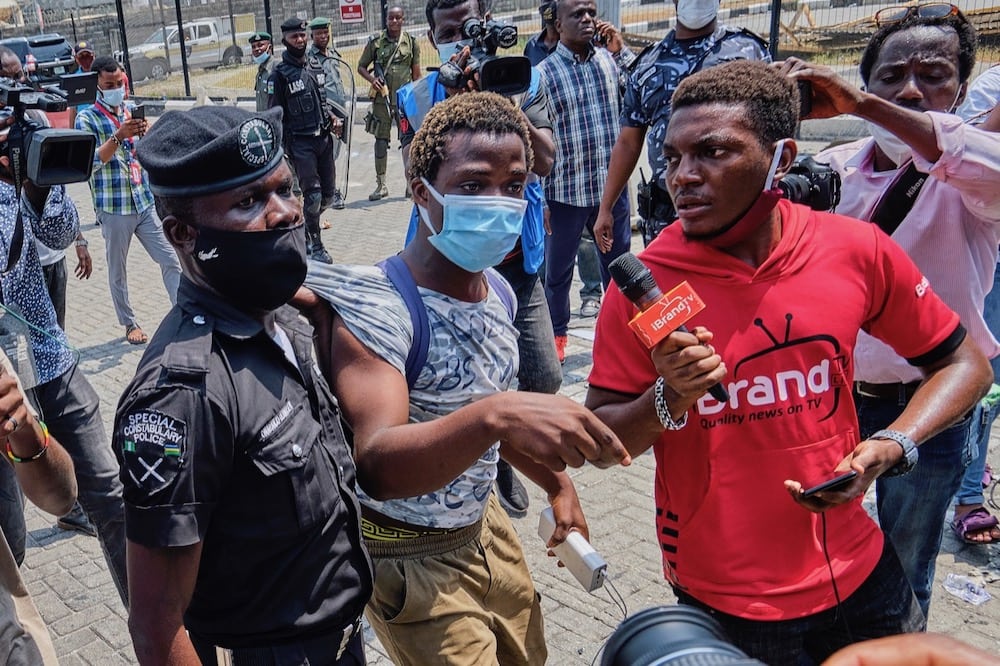On Monday, December 18, 2023, six months into his administration, President Tinubu pledged to uphold media freedom and respect opinions, whether adversarial or complimentary to his government. During a meeting with the Newspaper Proprietors’ Association of Nigeria (NPAN), the Minister of Information and National Orientation, Mohammed Idris, also reiterated the federal government’s commitment to fostering a vibrant and responsible media landscape in the country.
“Our democracy thrives on the principles of transparency, accountability, and the free flow of information. The role of the media, particularly the newspapers, is paramount in upholding these principles,” Mohammed said
In Nigeria, the 1999 Constitution, as amended, empowers journalists through Section 22, which states that the press, radio, television, and other mass media agencies are free to hold the government accountable to the people. This section also recognizes journalists as essential to the nation, and any attempt to prevent them from performing their duties is a violation of press freedom.
Also, Section 39(1) of the Constitution also guarantees the right to freedom of expression, including the freedom to hold opinions, receive and impart ideas, and information without interference.
However, despite this promise and laws, journalists have been targeted and attacked across the country.
On February 6, four journalists from the online news site Informant247 – Adisa-Jaji Azeez, Salihu Ayatullahi, Salihu Shola Taofeek, and Abdulrahman Taye Damilola – were recently arrested, detained, and charged with conspiracy, cyberstalking, and defamation.
The charges leveled against them followed a complaint lodged by the rector of Kwara State Polytechnic, Engineer Abdul Jimoh Muhammed. The complaint stemmed from reports published by the news site on November 10, 2023, and February 1, 2024, alleging that the rector had made false claims about the institution’s financial status and commissioned shoddy project work.
On March 15, Segun Olatunji was reportedly taken away by 15 soldiers from his residence in Abule-Egba, Lagos. He was subsequently released two weeks later by the Defence Intelligence Agency (DIA). The arrest followed a report accusing an official affiliated with the Nigeria Defence Intelligence Agency (DIA) of unfair allocation of public contracts.
On July 27, 2023, Chinonso Uba, a journalist in Imo State, was whisked away by the police after he finished anchoring his morning program on Ozisa FM, a radio station in Owerri, the state capital. The operatives came from the Criminal Investigation Department of the Force Headquarters in Abuja, where they detained the journalist.
A day later, the Commissioner for Information in Imo State, Declan Emelumba, disclosed that the journalist was arrested for allegedly defaming the state governor, Hope Uzodinma. On August 16, after three weeks, the police arraigned the journalist at a Federal High Court in Abuja. He was later released on Tuesday after 32 days in detention.
Abduction persists
In Nigeria, the threats to journalist’s lives are unending. Just recently, Daniel Ojukwu, a journalist was abducted In Lagos state by the Nigerian Police. He was earlier declared missing after his whereabouts were unknown on May 1, only to have been discovered that he had been detained at Panti, with the accusation he violated the 2015 Cybercrime Prohibition Act.
On Sunday, May 5, Ojukwu was transferred to Abuja, the Nigeria Police Force National Cybercrime Centre. The arrest of Ojukwu follows his report about alleged financial mismanagement of over 147 million naira ($104,600) involving a senior government official.
Ojukwu was released ten days after media organizations and CSOs staged a protest in Abuja, demanding for his release.
The Cybercrime Prohibition Act 2015
The Cybercrime (Prohibition, Prevention, etc.) Act, 2015, was enacted to provide a unified legal, regulatory, and institutional framework for the prohibition, prevention, detection, investigation, and prosecution of cybercrimes in Nigeria.
This Act has been used to repress journalists and media workers across the country, thereby reducing press freedom. According to Ipi Media, Several journalists in Nigeria have been arrested, detained, and arraigned in recent years on charges stemming from the Cybercrime Act. Examples include the 34-day detention of journalist Agba Jalingo and the jailing of Saint Mienpamo Onitsha, who was recently released after four months in jail.
Reporters Without Borders (RSF), ranked Nigeria 123 of 180 countries in its global press freedom report for 2023, adding that Nigeria is one of West Africa’s most dangerous and difficult countries for journalists.
